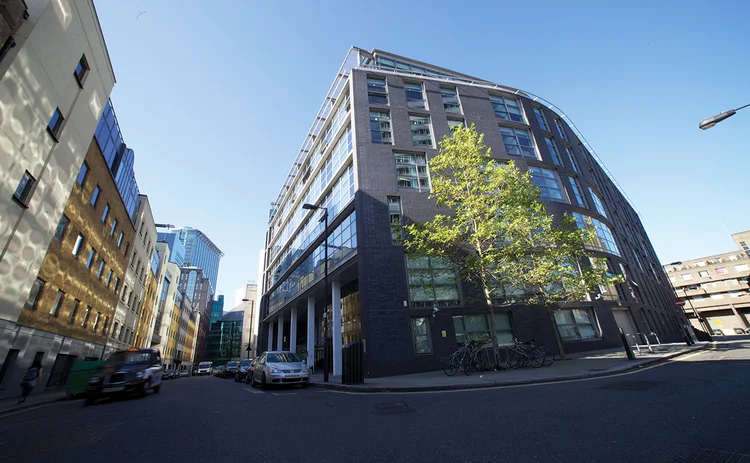
Quant Guide 2020: City, University of London
Bayes Business School (formerly Cass Business School), London, UK

Dirk Nitzsche may be the busiest man in quant academia. A senior lecturer in finance at City’s Cass Business School, he runs not just one, but three, quantitative finance graduate programmes – the Quantitative Finance MSc, Financial Mathematics MSc, and Mathematical Trading and Finance MSc. Last year’s intake numbered 72 students across all three programmes, 65 of whom were international.
All three programmes are similarly structured and take 12 months to complete on a full-time basis. Before getting started with classes, new students take part in a two-week induction, during which they complete refresher courses and attend a careers fair. The first term is also identical across all three MScs. All students take five modules: asset pricing, derivatives, foundations of econometrics, stochastic modelling methods in finance and applied research tools.
The programmes vary from the second term onwards. All three require students to complete classes in fixed income and risk analysis plus two programme-specific classes. For the Mathematical Trading and Finance MSc, this means quantitative trading and machine learning; for the Financial Mathematics MSc, it’s advanced stochastic modelling and simulations and techniques in financial modelling; and for the Quantitative Finance MSc, it’s econometrics of financial markets and numerical methods.
In the third term, students of all three programmes are presented with a range of choices. They can opt for five specialist electives, a 10,000-word business research project plus one elective, or a shorter applied research project of 3,000–5,000 words plus three electives.
There is some overlap within the elective pools for each programme, but many are unique to the individual degree. The Quantitative Finance MSc, for example, has a module on Islamic banking, finance and insurance that isn’t available to students of the other programmes. Similarly, the Financial Mathematics MSc is alone in offering classes in copula modelling. The Mathematical Trading MSc has a class in advanced financial modelling and forecasting that doesn’t appear elsewhere.
Students of all three programmes can choose an international elective as one of their options – an introduction to fintech class, which is taught in Italy, according to the programme’s web listing.
View this institution’s entry in the 2019 guide
View other universities and a guide to the metrics tables
Please note: Cass Business School was renamed Bayes Business School in 2021.
Only users who have a paid subscription or are part of a corporate subscription are able to print or copy content.
To access these options, along with all other subscription benefits, please contact info@risk.net or view our subscription options here: http://subscriptions.risk.net/subscribe
You are currently unable to print this content. Please contact info@risk.net to find out more.
You are currently unable to copy this content. Please contact info@risk.net to find out more.
Copyright Infopro Digital Limited. All rights reserved.
As outlined in our terms and conditions, https://www.infopro-digital.com/terms-and-conditions/subscriptions/ (point 2.4), printing is limited to a single copy.
If you would like to purchase additional rights please email info@risk.net
Copyright Infopro Digital Limited. All rights reserved.
You may share this content using our article tools. As outlined in our terms and conditions, https://www.infopro-digital.com/terms-and-conditions/subscriptions/ (clause 2.4), an Authorised User may only make one copy of the materials for their own personal use. You must also comply with the restrictions in clause 2.5.
If you would like to purchase additional rights please email info@risk.net
More on Quantitative finance
Quant Finance Master’s Guide 2026
Risk.net’s guide to the world’s leading quant master’s programmes, with the top 25 schools ranked
Baruch, Princeton cement duopoly in 2026 Quant Master’s Guide
Columbia jumps to third place, ETH-UZH tops European rivals
Quant Finance Master’s Guide 2025
Risk.net’s guide to the world’s leading quant master’s programmes, with the top 25 schools ranked
Baruch maintains top spot in 2025 Quant Master’s Guide
Sorbonne reclaims top spot among European schools, even as US salaries decouple
Quant Finance Master’s Guide 2023
Risk.net’s guide to the world’s leading quant master’s programmes, with the top 25 schools ranked
Baruch topples Princeton in Risk.net’s quant master’s rankings
US schools cement top five dominance as graduate salaries soar
Is it worth doing a quant master’s degree?
UBS’s Gordon Lee – veteran quant and grad student supervisor – asks the hard question
Starting salaries jump for top quant grads
Quant Guide 2022: Goldman’s move to pay postgrads more is pushing up incomes, says programme director







